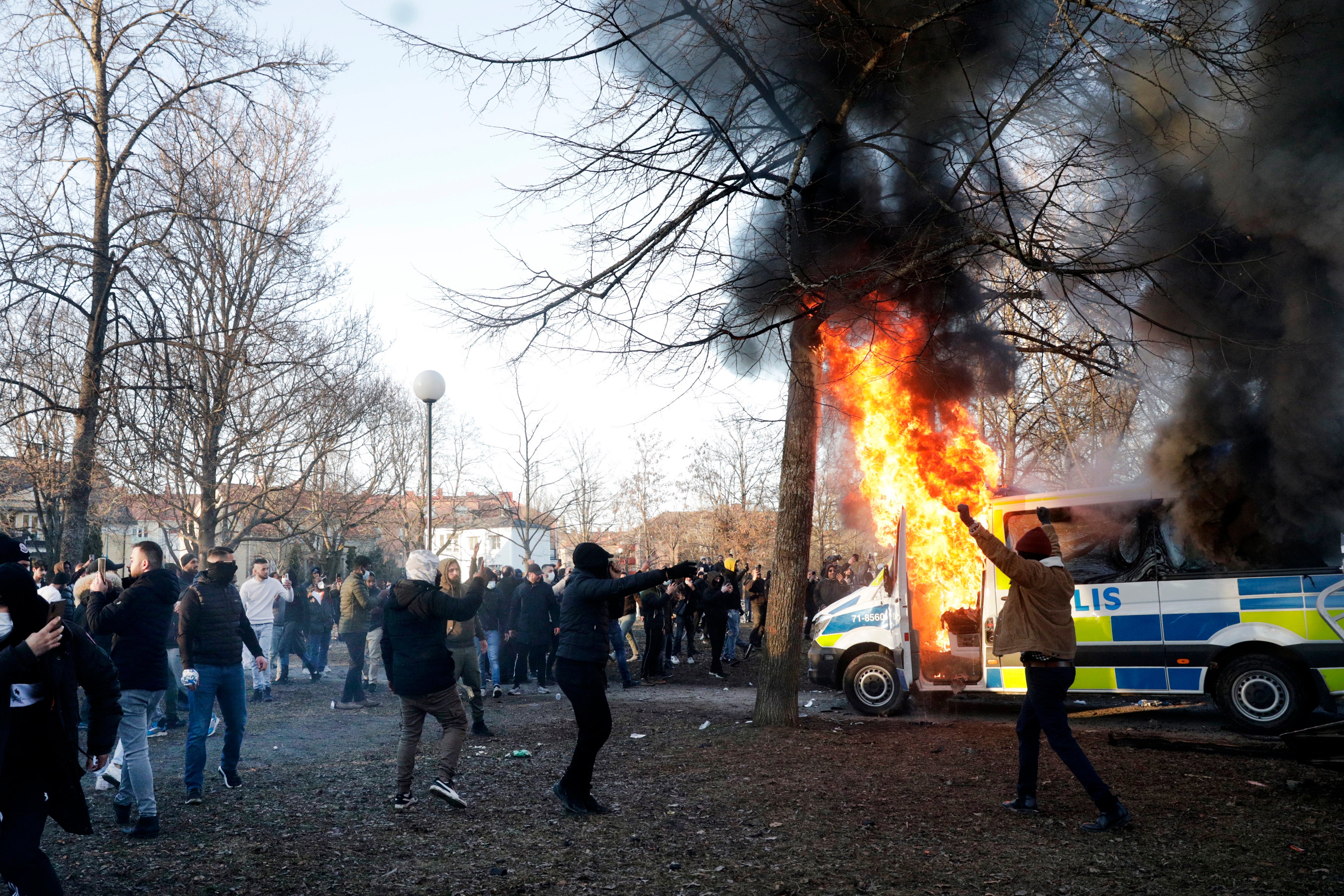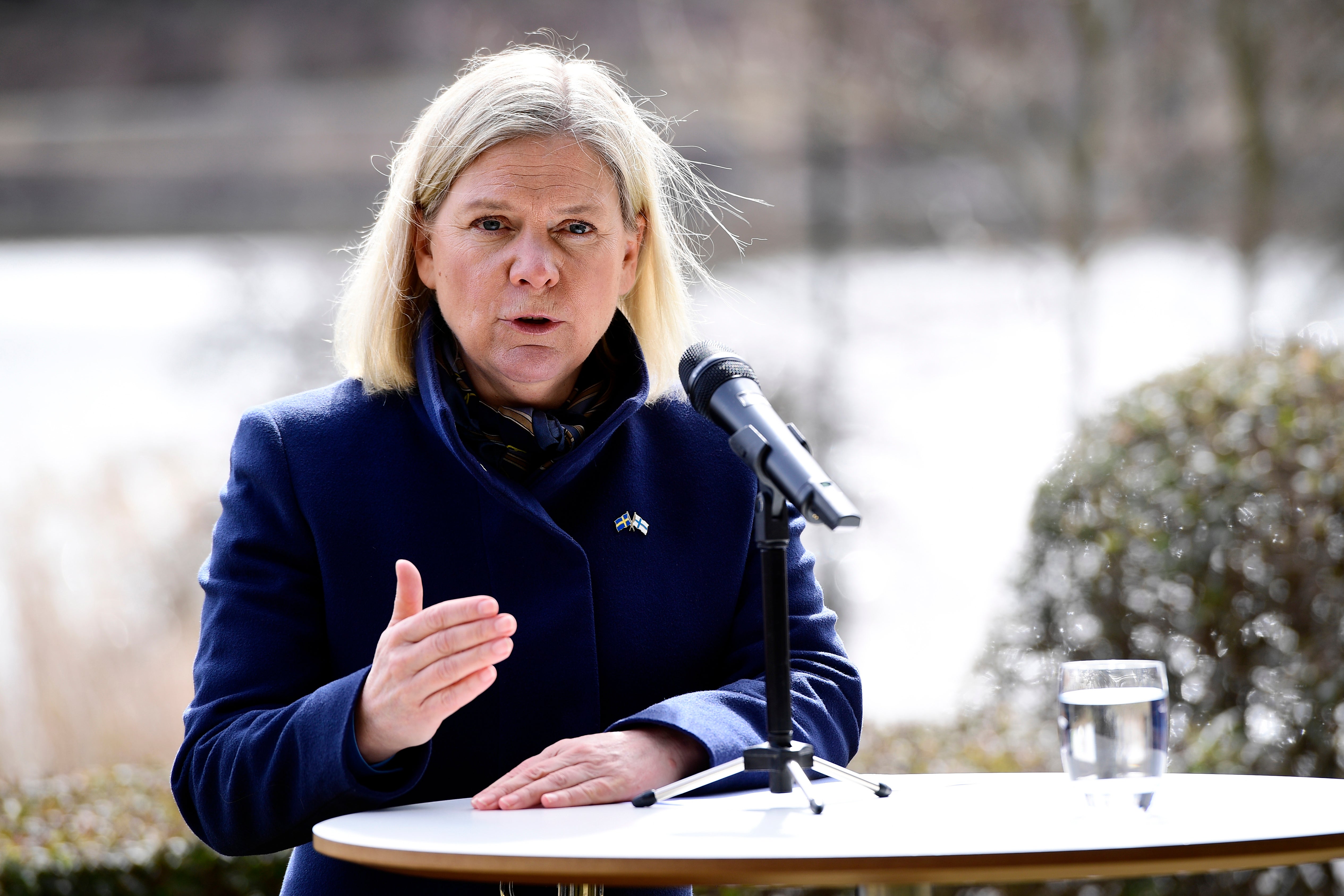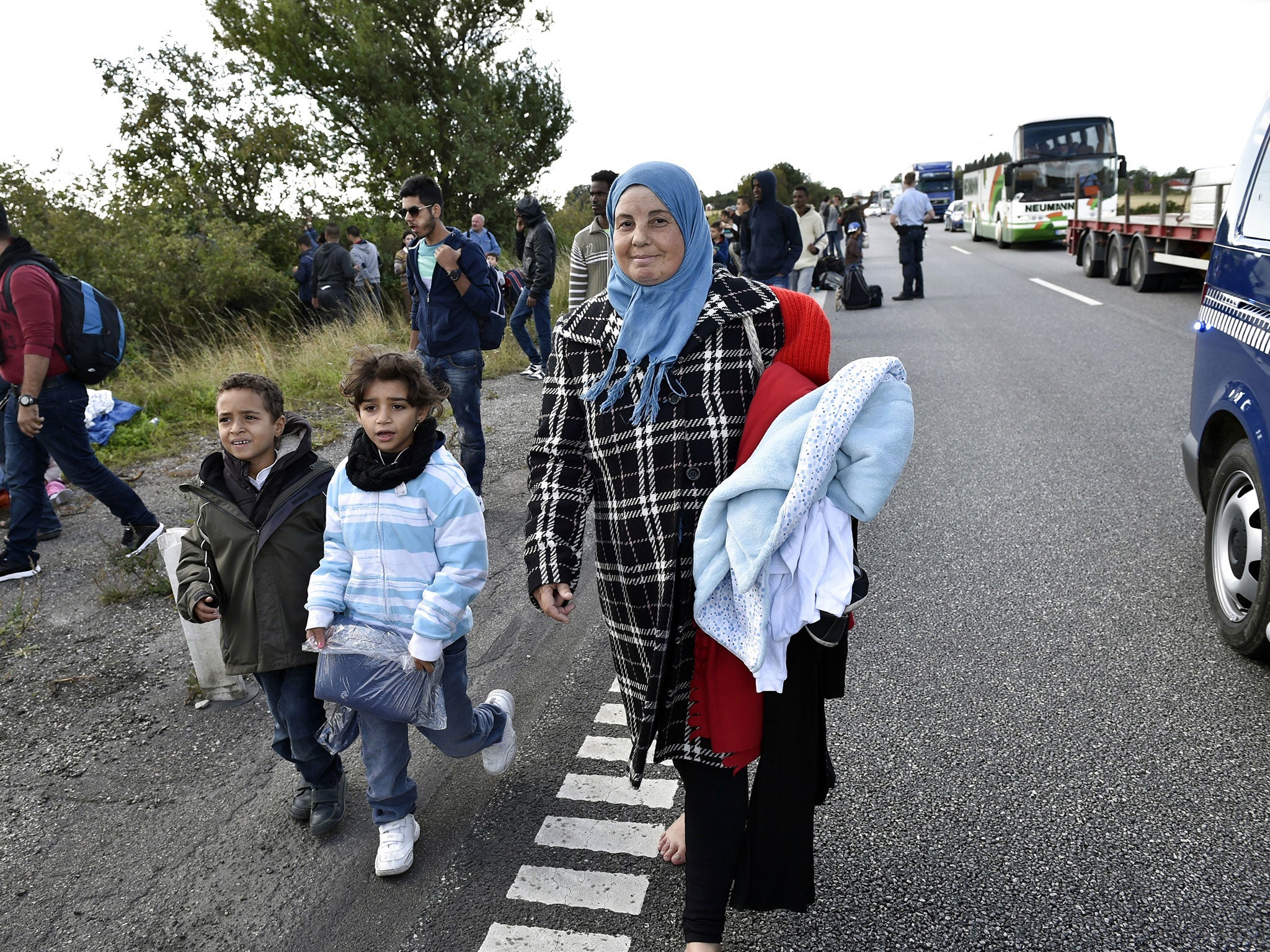Failed integration of immigrants is fueling gang violence and crime, Swedish PM says
‘Segregation has been allowed to go so far that we have parallel societies’, says Magdalena Andersson
Sweden has failed to integrate the vast numbers of immigrants it has taken in over the past two decades, leading to parallel societies and gang violence, prime minister Magdalena Andersson said on Thursday.
Ms Andersson blamed criminals and took aim at both radical Islamists and right-wing extremism which she claimed has been allowed to fester in Sweden.
The Swedish leader made the unusual and self-critical comments as she launched a series of initiatives to combat organised crime.
Many Swedes were shocked earlier this month after violent riots left more than 100 police injured. The violence erupted after a Swedish-Danish politician burned the Quran at a rally and sought to hold more in several immigrant-dominated neighborhoods.
Swedish police were forced to fire warning shots during a riot in an eastern city to disperse protesters angry about the days-long demonstrations led by anti-Islam groups. Three people were also left injured in the clashes.
“Segregation has been allowed to go so far that we have parallel societies in Sweden. We live in the same country but in completely different realities,” Ms Andersson told a news conference.
The number of people in Sweden born abroad has doubled in the last two decades to 2 million, or a fifth of the population. Ms Andersson's Social Democrats have been in power for 28 of the last 40 years, including the last eight.
The Swedish prime minister said she wanted to introduce local youth crime boards where social services and police could collaborate. She also proposed tools to make sure that youths stayed in schools and off the streets without the consent of parents.

“Integration has been too poor at the same time as we have had a large immigration. Society has been too weak, resources for the police and social services have been too weak," she said.
Sweden, which will hold a general election later this year, has radically tightened its immigration policies since taking in more people per capita than any other EU country during the migration crisis in 2015 with 160,00 refugees, most of them Syrian.
It now has one of the bloc's most restrictive policies. Just last year, Sweden approved a new immigration policy making it harder for refugees to receive permanent residency in the country.

The new legislation, approved by the Swedish parliament last summer made residence permits for refugees time-limited in the first instance instead of permanent.
Before the changes, the Scandinavian country issued permanent residency permits to refugees and asylum seekers as a rule of thumb.
The new rules, put forward by the Social Democrat-Green government in April 2021, turn this norm on its head. Permits are now only renewed if the circumstances under which they were first issued still apply.

Human rights organisation Amnesty International has been critical of Sweden's tightening of policies, claiming it is causing human suffering and making integration even harder for immigrants.
“The consequences of the new migration law will be that it will be more difficult for victims to focus on integration, to become part of Swedish society and enter the labor market,” Amnesty International said.
“At the same time, the Swedish Migration Agency will be forced to invest large resources in reconsiderations.”
Join our commenting forum
Join thought-provoking conversations, follow other Independent readers and see their replies
Comments


Bookmark popover
Removed from bookmarks